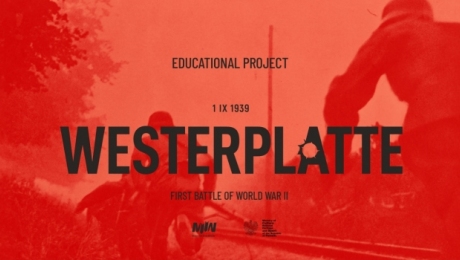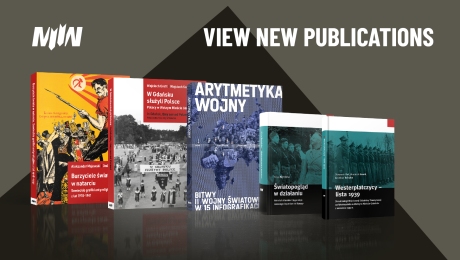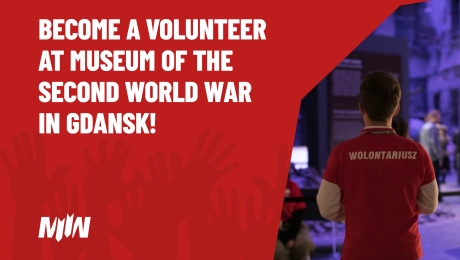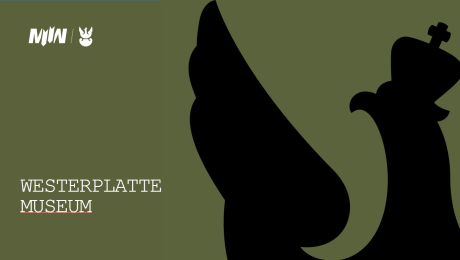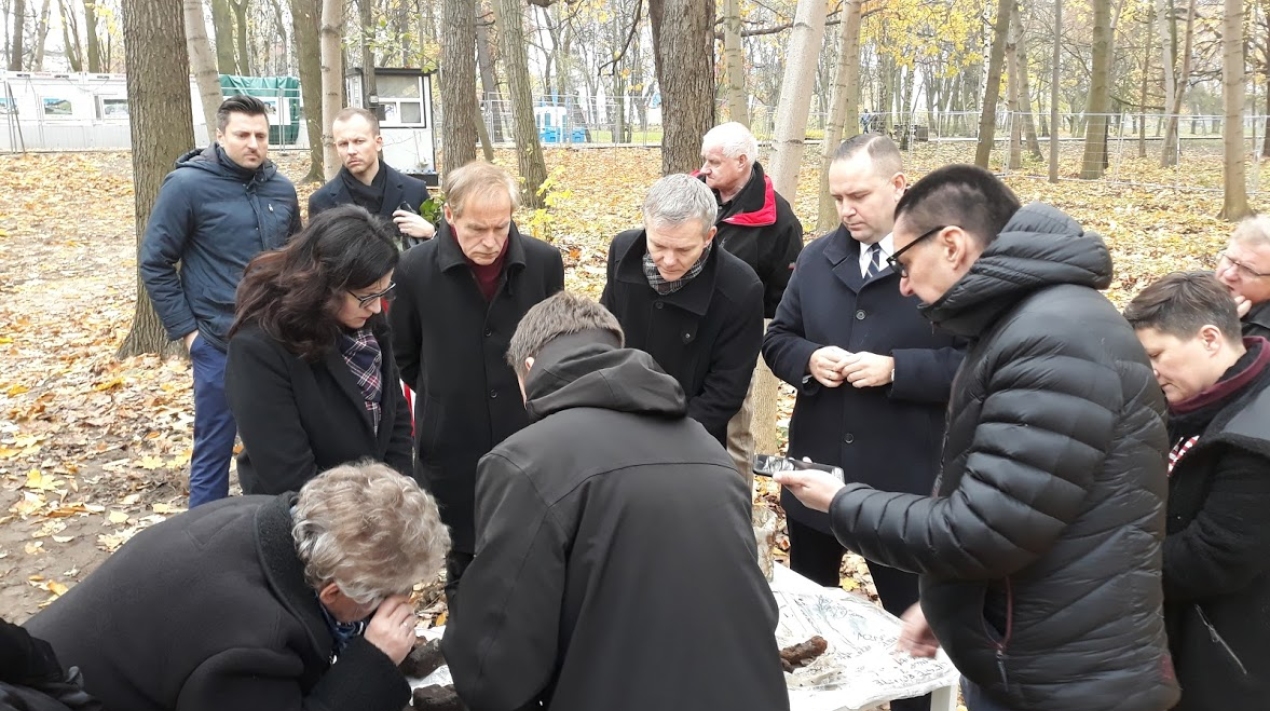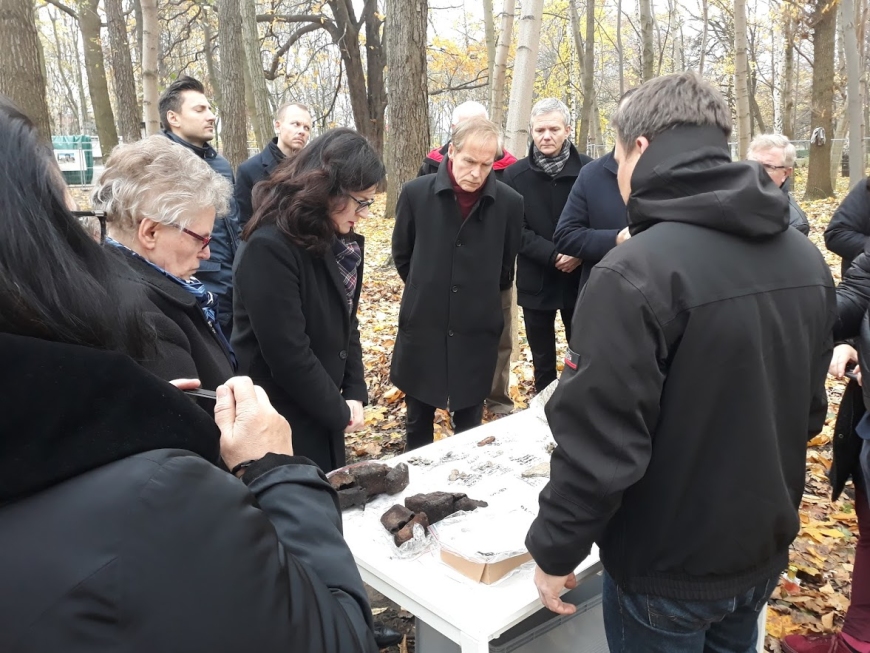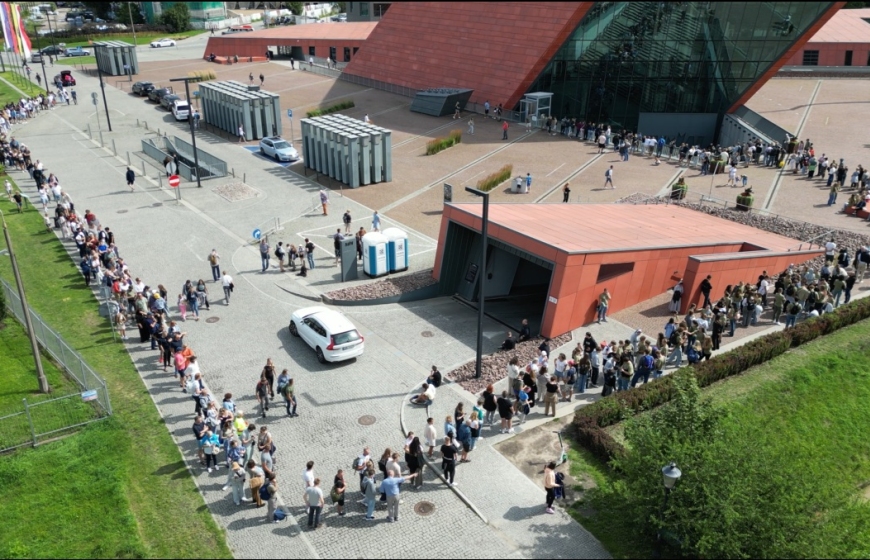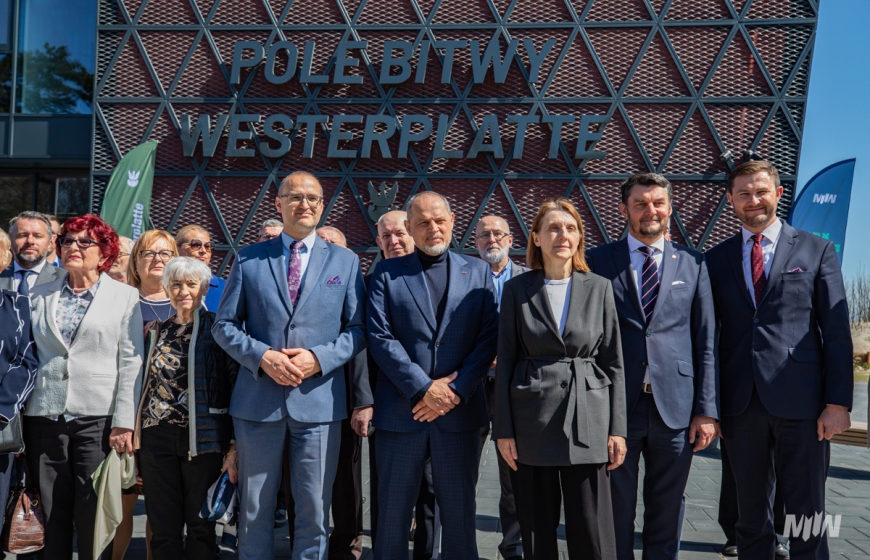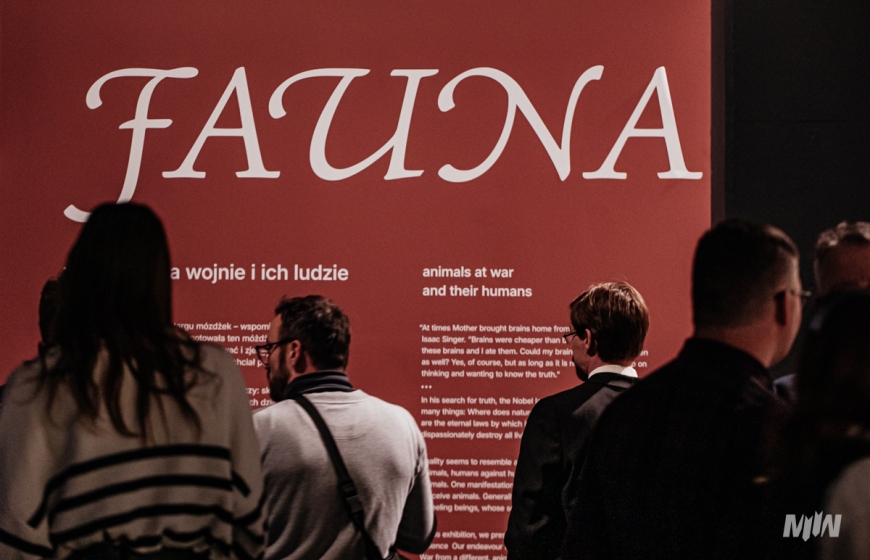Aleksandra Dulkiewicz’s visit to Westerplatte
Ground works connected with filling the excavations from the fifth stage of archaeological research on Westerplatte ended on the 15th of November 2019. The research was received by protocol by the Pomeranian Provincial Monument Conservator in Gdańsk, stressing the necessity and the legitimacy to continue the archaeological works there. During the fifth stage of the research, the archaeologists from the Museum of Westerplatte and the War of 1939, branch of the Museum of the Second World War in Gdańsk, found nine intact or fragmented skeletons of people, as well as a few hundreds of human bones. Artefacts acquired at the skeletons, as well as traces of injuries visible in the bones suggest that the remains belong most probably to the defenders of the Military Transit Depot fighting in September 1939 on Westerplatte.
Today, the site of the works which had ended on the 15th of November, was visited by the Mayor of Gdańsk, Ms Aleksandra Dulkiewicz and the employees of the Gdańsk City Hall. She was welcomed by the Museum’s Director, Karol Nawrocki, PhD, the Head of the Department of the Museum of Westerplatte and the War of 1939, Mariusz Wójtowicz-Podhorski, and Filip Kuczma, the head of the archaeological works. During the meeting, Filip Kuczma told the guests about the details of the fifth stage of the works, he showed the place where the remains were found, and he presented selected archaeological artefacts found with the fallen.
Director of the Museum of the Second World War, Karol Nawrocki, PhD, reminded that an investigation is currently being carried out by the prosecutor's office of IPN Investigation Division concerning the discovered remains. Meanwhile, the remains were moved to the Pomeranian Medical University in Szczecin for genetic studies aimed at identifying the fallen.
Moreover, Director Nawrocki informed the Mayor of Gdańsk about yet another, sixth, stage of the archaeological research planned for 2020. He also asked the Mayor to influence her subordinate officials not to hinder the works carried out by the Museum on the Westerplatte Peninsula, as had been the case during previous seasons of the archaeological research.
At the end of the meeting, the Director of the Museum stressed the necessity to hold a state funeral next year for the fallen Defenders of Westerplatte, pointing out that the Polish State, using the hands of the archaeologists from the Museum of the Seconds World War, asked for the remains of the Heroes and that the Polish State shall bury them proudly after 80 years in nameless graves.






